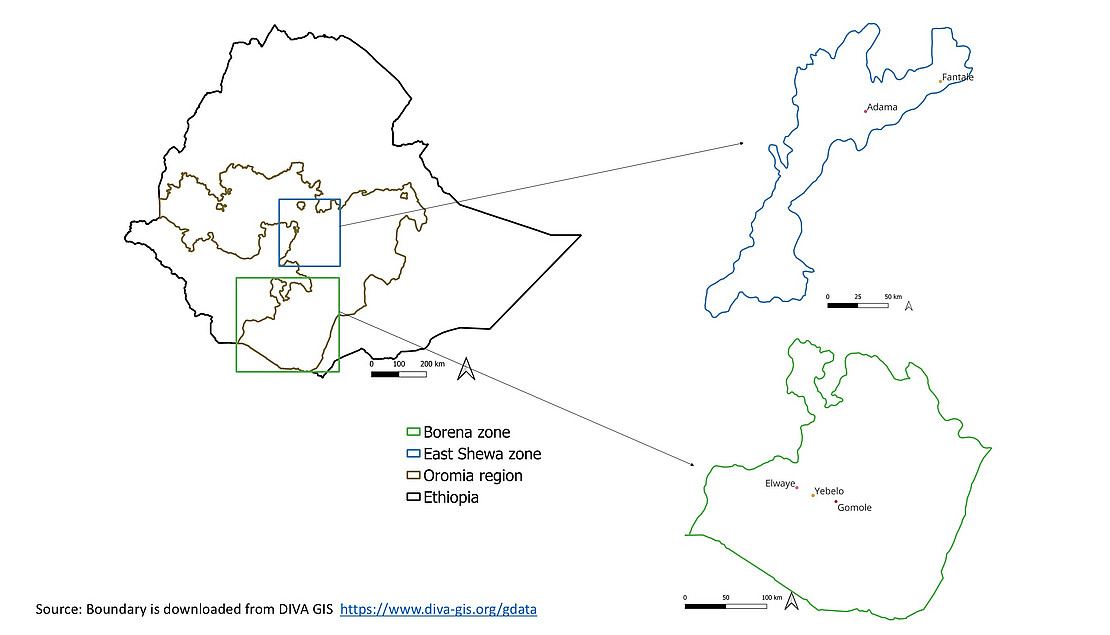Project Overview
Sustainable camel milk production through improved husbandry practices and milk value chain
SUSCAMI aims at
- systematically analyzing how to improve camel husbandry, camel health management as well as camel milk hygiene along the whole value chain in Borana and East Shewa zone of Oromia region in Ethiopia,
- integrating indigenous knowledge on camel husbandry, health care and milk hygiene practices with scientific knowledge to improve camel milk production and marketing, and
- together with camel-keeping communities and actors along the milk value chain, identifying, implementing and evaluating, suitable measures as an effective strategy for the sustainable development of the camel milk value chain in the study areas and beyond.
We use a trans- and interdisciplinary approach to systematically assess potential managerial factors (feeding, breeding, husbandry, calf management, health care) and related knowledge gaps that affect camels’ milk production and reproduction performances. Furthermore, knowledge (gaps) of hygienic milking practices are identified and combined with insights of an analysis of the organizational structure of the milk value chains in Borana and East Shewa zone. We also investigate how milk marketing contributes to the incomes of camel rearing households as well as camel milk retailers and distributors.
The generated data supports the identification and selection of most relevant intervention measures by integrating herders’ and value chain actors’ indigenous knowledge and scientific evidence. Suitable intervention measures are then test-implemented in the two study areas to assess their practicability and effectiveness and raise the awareness among herders, consumers and political decision-makers about safe handling and storage of camel milk and the related positive impact on human and camel health.

